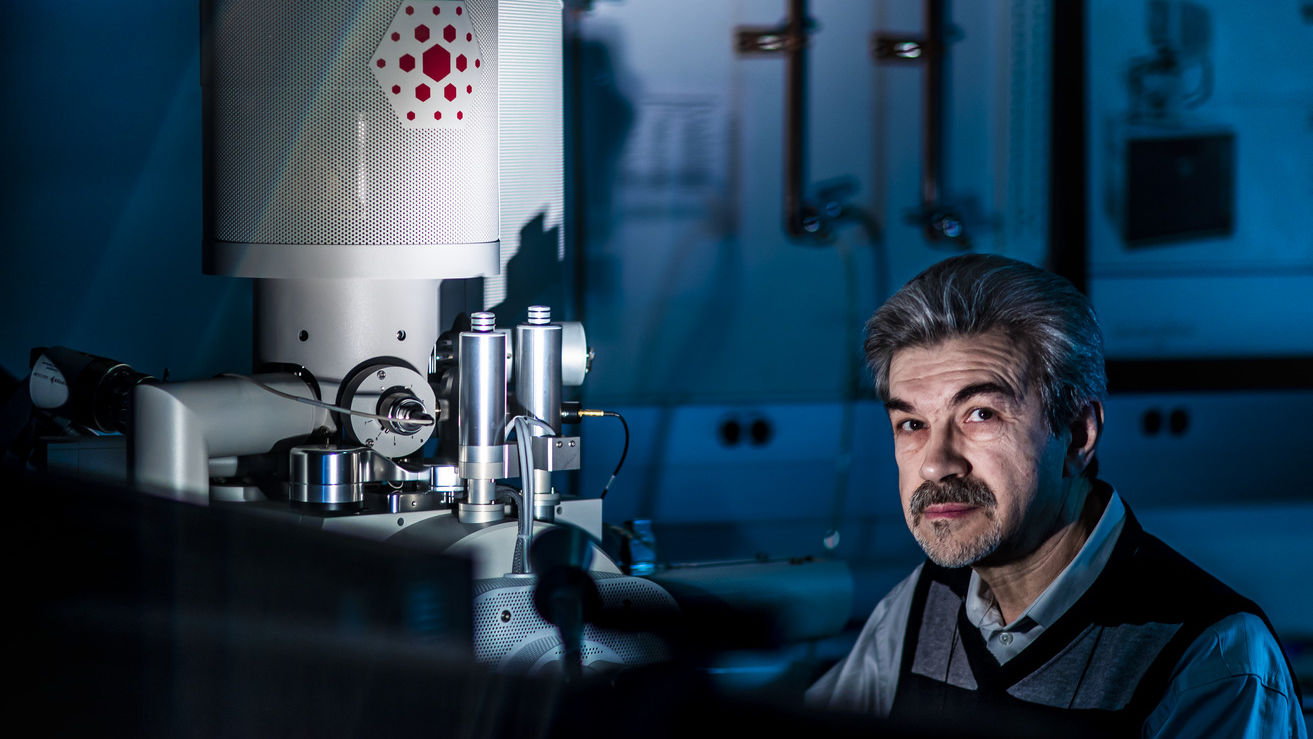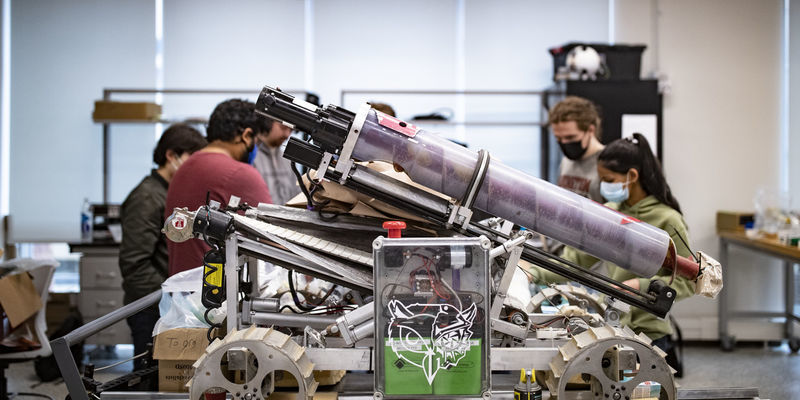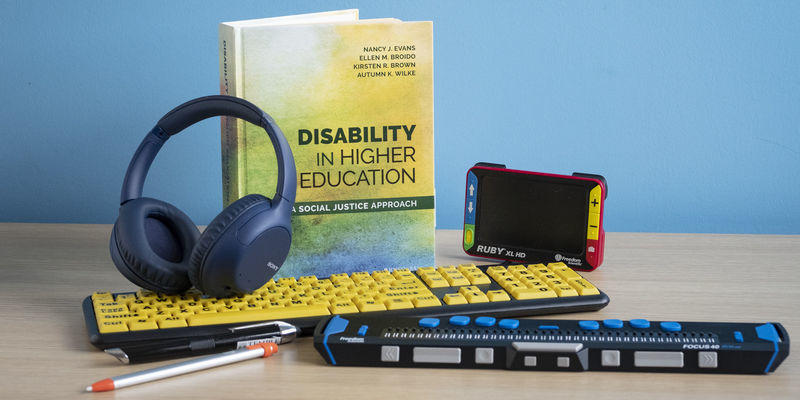Temple faculty organizes lecture series for Ukrainian students at alma mater in Kharkiv
Associate Professor of Mechanical Engineering Dmitriy Dikin has helped create a multidisciplinary master’s program around sustainable and renewable energy at his alma mater in Ukraine.

Alumni often field requests to support their alma mater, either through scholarships or mentorship or attending events. But what happens when your alma mater is under siege during a military conflict?
In the summer of 2022, Temple University Associate Professor of Mechanical Engineering Dmitriy Dikin, a graduate of National Technical University Kharkiv Polytechnic Institute (KhPI) in Kharkiv, Ukraine, answered a call from KhPI Professor Oleksiy Larin to help to create a multidisciplinary master’s program around sustainable and renewable energy at the intersection of microelectronics and electrical engineering.
“Ukraine is where I grew up, got an education and became who I am,” Dikin recalled. “My hometown of Kharkiv is still shelled and bombed almost every day, and the front line is less than 30 miles away.”
KhPI Associate Professor Kseniia Minakova, a coordinator with the partnership, outlined the program’s main goals of “improving Ukrainian universities teachers’ qualifications as well as the students’ awareness in the latest engineering technologies from renewable energy.
“After Russia’s military aggression struck key industrial facilities in the Kharkiv region and Ukraine, it became clear: The renewal of these technical units should be focused on new technologies, green industry and accelerating the trend of replacing fossil fuels for sustainable energy independence,” Minakova added.
The pilot agreement, funded by a Public Diplomacy Small Grants program from the U.S. Embassy in Kyiv includes 262 participants, with nearly one-third of teaching support coming from outside the country.
Currently, the program is moving to the next two stages, one of which is the development of a free online Ukrainian language course based on the combined expertise of Ukrainian and American partners, and in parallel, the implementation of case-oriented student projects, the results of which will be evaluated by Ukrainian businesspeople and mentors from the U.S.
Dikin approached and received unconditional consent from Temple colleagues Jim Shih-Jiun Chen, professor of mechanical engineering, and Liang Du, professor of electrical and computer engineering, to participate in the project. The project also included faculty from Tulane, Berkeley National Laboratory and the University of British Columbia, with additional topics ranging from energy and nanotechnology to economics and management.
Chen, who delivered two lectures on wind energy and hydroelectric energy to nearly 100 faculty and students, put those two subjects into context.
“Not only is this the greatest humanitarian crisis in Europe since World War II, it has also accelerated a global energy crisis,” Chen said. “I was surprised to find that more than half of Ukraine’s electricity was produced with nuclear power. However, the Ukraine government also set a goal to reach 25% of electricity generation with renewable energy including hydroelectric, wind and solar energy by 2030.”
Dikin hopes that this can lead to a mutually beneficial long-term cooperation through different exchange programs, while representing one tangible way to support his alma mater and the Ukrainian people from afar and help the country rebuild from the ruins of military aggression.
“The unjustified war has revealed many unresolved problems facing humanity,” he said. “Among them, energy security and the transition from fossil to renewable energy sources are among the pressing priorities.”
- Eric Horvath

